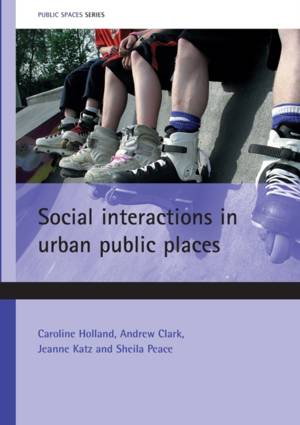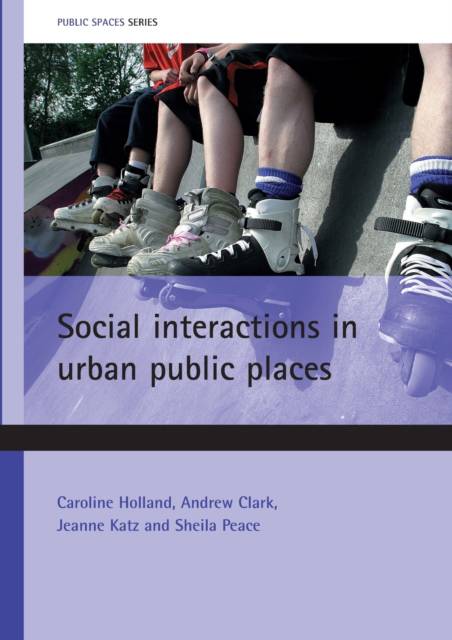
- Afhalen na 1 uur in een winkel met voorraad
- In januari gratis thuislevering in België
- Ruim aanbod met 7 miljoen producten
- Afhalen na 1 uur in een winkel met voorraad
- In januari gratis thuislevering in België
- Ruim aanbod met 7 miljoen producten
Social Interactions in Urban Public Places
Caroline Holland, Andrew Clark, Jeanne Katz, Sheila PeaceOmschrijving
Public spaces allow people to meet on ostensibly neutral ground, within the context of the whole community.
Social interactions in urban public places draws on a unique study of nine public spaces within one English town viewed across a whole year, carried out by a large team of local observers working alongside academics. The report describes the use of green spaces, commercial and civic spaces, and local neighbourhoods; investigates interactivity within and between people of different age groups; highlights self-regulation as an essential element of the management of public spaces; considers the role of reputation in perceptions of particular places and discusses public involvement in regeneration and the democratising role of public places.
Good quality public spaces are integral to 'Cleaner, Safer, Greener', 'Sustainable Communities' and 'Community Cohesion' policies. Yet many public spaces are subject to competition between different users, of different ages, with conflicting ideas about their appropriate use. The study will be of interest to policy makers, practitioners and academics concerned with public space, community cohesion, community involvement, and intergenerational relationships, and anyone interested in the social life of towns.
Specificaties
Betrokkenen
- Auteur(s):
- Uitgeverij:
Inhoud
- Aantal bladzijden:
- 88
- Taal:
- Engels
- Reeks:
Eigenschappen
- Productcode (EAN):
- 9781861349972
- Verschijningsdatum:
- 24/04/2007
- Uitvoering:
- Paperback
- Formaat:
- Trade paperback (VS)
- Afmetingen:
- 210 mm x 297 mm
- Gewicht:
- 231 g

Alleen bij Standaard Boekhandel
Beoordelingen
We publiceren alleen reviews die voldoen aan de voorwaarden voor reviews. Bekijk onze voorwaarden voor reviews.









